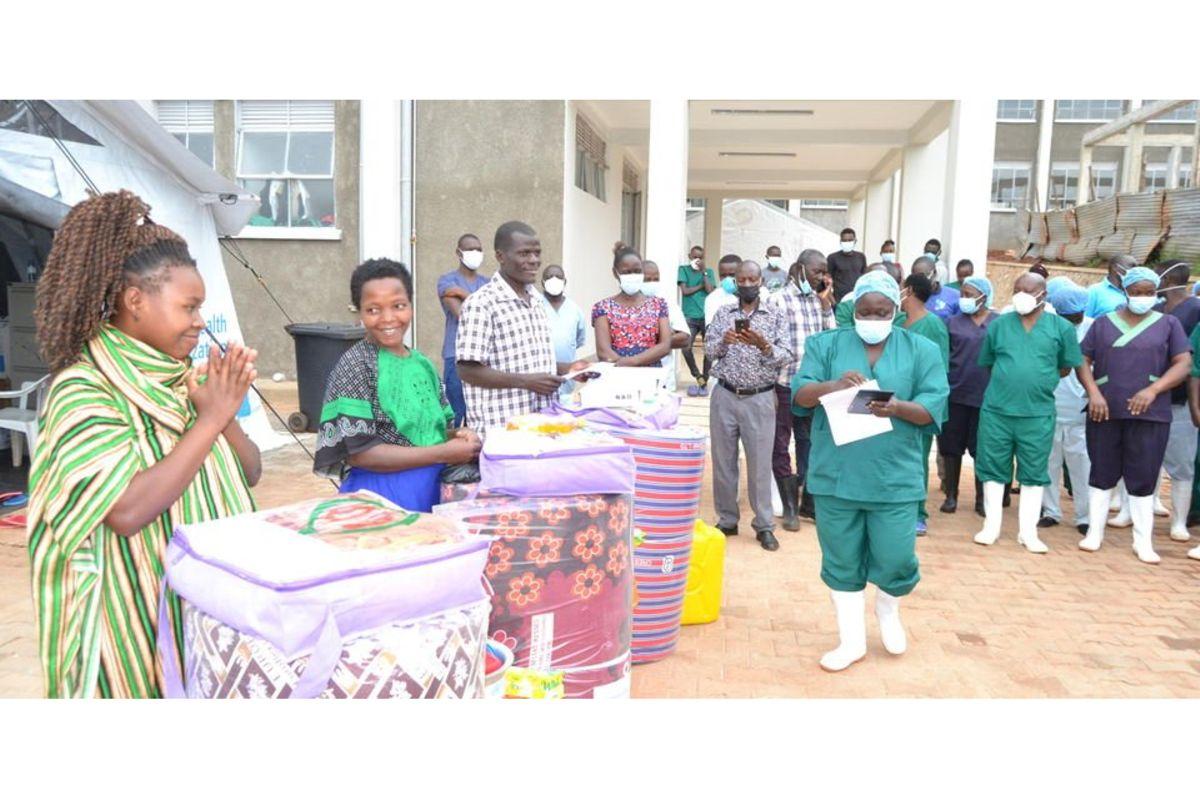Africa-Press – Uganda. Fifteen members of the same family were on Tuesday taken into forced isolation after allegedly first resisting and attacking the Ebola Virus Disease surveillance and burial team.
This rather unfortunate incident happened in the wake of the Ministry of Health confirming the first case of Ebola death in Kampala.
More regrettably and damning for all the efforts to combat the spread of the deadly disease is that the deceased had deliberately concealed his identity and travelled to different places before settling in suburban Nateete.
Authorities on the lookout for him learnt rather too late after his body had been returned to the village in Mubende for burial. He had succumbed to Ebola at Kiruddu Hospital in Kampala.
During his national address last week, the President rallied the nation to combat the spread of Ebola, reminding the citizens that they had done tremendously well against the coronavirus disease whose spread by air was more devastating than Ebola’s contact mode. Uganda was widely commended globally for its fight to stop the spread of Covid-19 when the pandemic wreaked global havoc.
The best approach to combating any epidemic is through community engagement. But the country cannot afford to take the Ebola outbreak lightly when the risk of it spreading exponentially has been lurking since the first case was confirmed three weeks ago. Currently, contact tracing has been used.
This technique can be effective in small communities, or when there are only a few cases, but the spread of Ebola to dense urban centres such as in the capital Kampala would make contact tracing impossible to implement. This is unfortunate – and could be tragic – a scenario the index case from Kiruddu Hospital has thrown the country into.
This is because the early symptoms of Ebola are like other viral infections – fever, chills, headache, sore throat, and muscle pain, among others.
By the time more serious symptoms such as vomiting, diarrhea, stomach pain, and unexplained bleeding manifest so that people know they have Ebola, a week may have gone by, and they would have probably infected other persons in the course. The public must be reminded that community engagement is essential at all stages of epidemic preparedness and response.
Under the approach, communities and local leaders can inculcate trusted, clear and effective communication and engagement approaches which are critical to ensure that fear, panic and rumours do not undermine response efforts and lead to a disease spreading even more quickly.
The case of the Kiruddu index is one such potential victim of fear and turning to traditionalism rather than to collaborate with responsible leaders.
But the stakeholders in the fight to combat Ebola should not waste the only silver lining the unfortunate incident has left for them. Now is the time to gain an insight into the perceptions and behaviour of different groups, and to develop effective and targeted messaging.
Without communities, Ebola cannot be eliminated. The frontline workers need to listen to community concerns and fears, plan together with them and adapt health responses in order to create trust and acceptance.
For More News And Analysis About Uganda Follow Africa-Press






